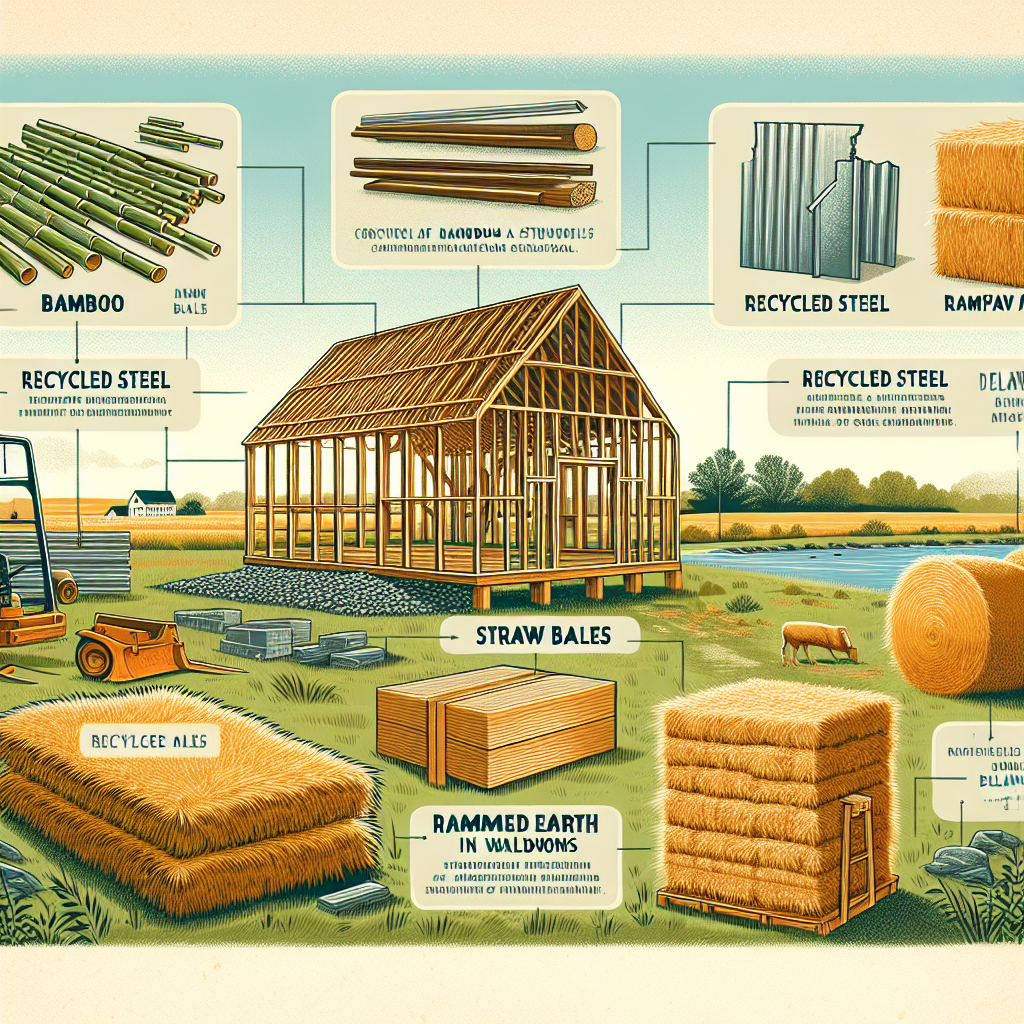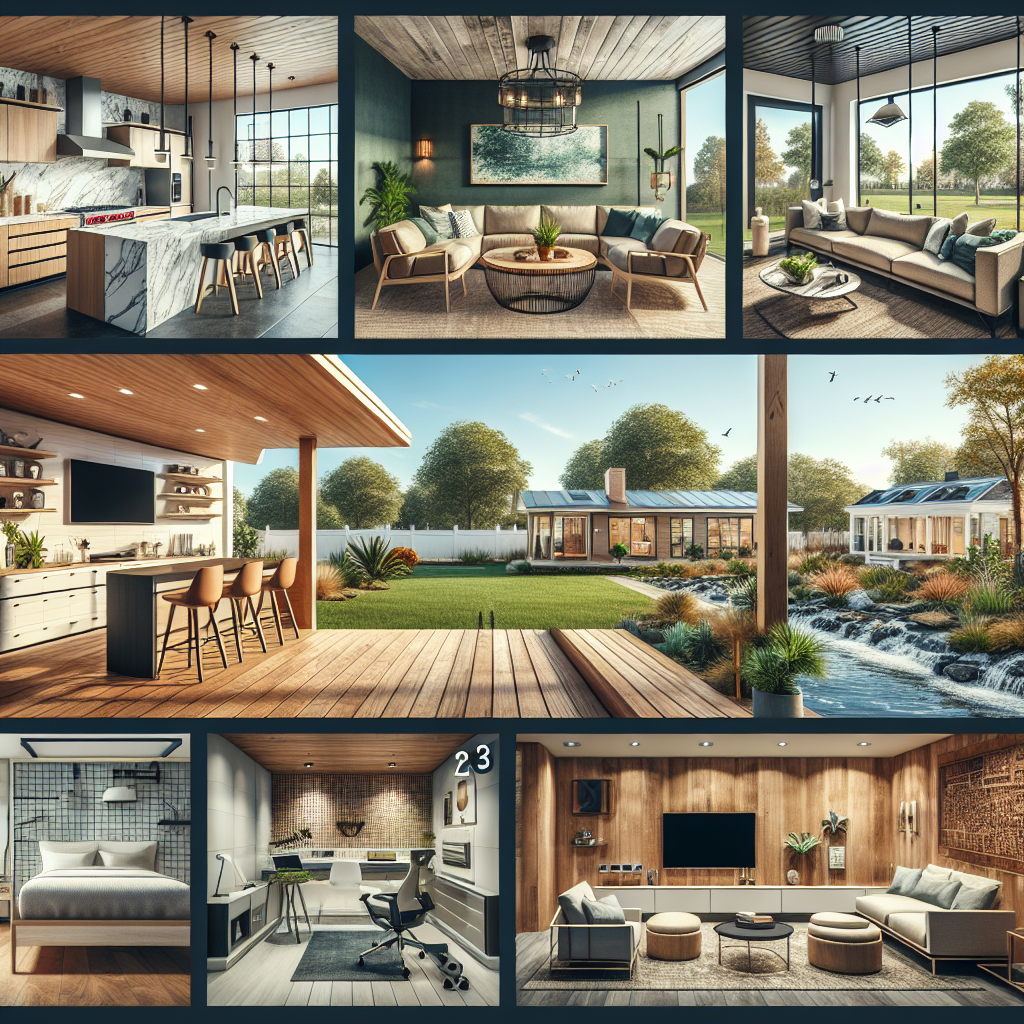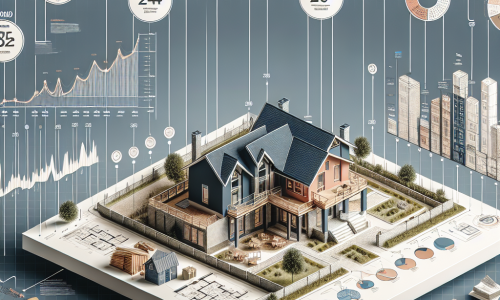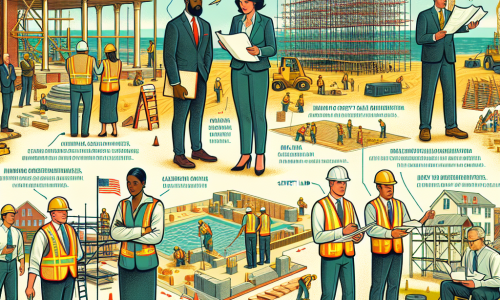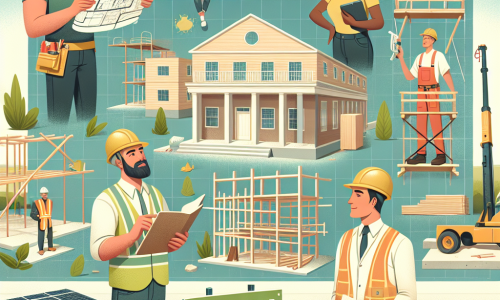Benefits of Using Sustainable Materials in Delaware Construction Projects When it comes to construction projects in Delaware, there is a growing trend towards using eco-friendly and sustainable building materials. This shift is driven by a desire to reduce the negative impact of construction on the environment and to create healthier and more energy-efficient buildings. In this article, we will explore the benefits of using sustainable materials in Delaware construction projects. One of the main benefits of using sustainable materials in construction is the positive impact on the environment. Traditional building materials, such as concrete and steel, have a significant carbon footprint due to the energy-intensive processes involved in their production. On the other hand, sustainable materials, such as bamboo, straw, and recycled materials, have a much lower carbon footprint. By using these materials, construction projects can significantly reduce their carbon emissions and contribute to mitigating the effects of climate change. In addition to reducing carbon emissions, sustainable materials also have a lower impact on the environment in terms of waste generation. Traditional construction materials often end up in landfills at the end of their lifespan, contributing to the growing problem of waste management. In contrast, sustainable materials are often biodegradable or recyclable, reducing the amount of waste generated by construction projects. This not only benefits the environment but also reduces the cost of waste disposal for construction companies. Another significant benefit of using sustainable materials in construction is the potential for cost savings. While some sustainable materials may have a higher upfront cost, they often have a longer lifespan and require less maintenance, resulting in cost savings in the long run. For example, using bamboo as a building material can save up to 30% in construction costs compared to traditional materials. Additionally, sustainable materials can also contribute to energy savings in buildings. Materials such as straw and hemp have excellent insulation properties, reducing the need for heating and cooling systems and resulting in lower energy bills. Apart from the environmental and cost benefits, using sustainable materials in construction can also have a positive impact on the health and well-being of building occupants. Traditional building materials, such as paints and adhesives, often contain harmful chemicals that can off-gas and contribute to poor indoor air quality. Sustainable materials, on the other hand, are often made from natural and non-toxic materials, creating a healthier indoor environment for occupants. This is especially important for buildings such as schools and hospitals, where occupants spend a significant amount of time indoors. Moreover, using sustainable materials can also have a positive impact on the local economy. Delaware has a rich agricultural sector, and using sustainable materials such as straw and hemp can create new markets for local farmers. This not only supports the local economy but also reduces the carbon footprint of construction projects by sourcing materials locally, reducing transportation emissions. In conclusion, there are numerous benefits to using sustainable materials in Delaware construction projects. From reducing carbon emissions and waste generation to cost savings and improved indoor air quality, sustainable materials offer a more environmentally friendly and healthier alternative to traditional building materials. Additionally, their use can also support the local economy and contribute to the overall sustainability of the construction industry. As the demand for sustainable buildings continues to grow, it is essential for construction companies in Delaware to consider incorporating these materials into their projects. By doing so, they can not only contribute to a greener and healthier environment but also reap the many benefits that come with using sustainable materials. Top Eco-Friendly Building Materials for Delaware Homes and Businesses As the world becomes more environmentally conscious, the demand for eco-friendly building materials has increased. Delaware, known for its beautiful beaches and rich history, is also making strides towards sustainability in its construction industry. Whether you are building a new home or renovating a commercial space, incorporating eco-friendly building materials can not only benefit the environment but also improve the overall quality and value of your project. One of the top eco-friendly building materials for Delaware homes and businesses is bamboo. This fast-growing grass is not only aesthetically pleasing but also incredibly durable. Bamboo has a higher tensile strength than steel, making it an ideal material for construction. It is also a renewable resource, with some species growing up to three feet in a single day. Bamboo can be used for flooring, cabinetry, and even structural elements such as beams and columns. Another popular eco-friendly building material is reclaimed wood. This refers to wood that has been salvaged from old buildings, barns, or other structures and repurposed for new construction. Reclaimed wood not only adds character and warmth to a space but also reduces the demand for new timber, which can contribute to deforestation. In Delaware, there are several companies that specialize in sourcing and repurposing reclaimed wood, making it easily accessible for construction projects. For those looking for a more modern and sleek aesthetic, recycled metal is a great eco-friendly option. Recycled metal, such as steel or aluminum, is made from scrap metal that has been melted down and reformed into new products. This process requires significantly less energy than producing new metal, making it a more sustainable choice. Recycled metal can be used for roofing, siding, and even structural elements. It is also highly durable and can withstand harsh weather conditions, making it a practical choice for Delaware’s coastal climate. In addition to materials made from natural resources, there are also eco-friendly options for insulation. Traditional insulation materials, such as fiberglass, can release harmful chemicals into the air and are not biodegradable. However, there are now eco-friendly alternatives, such as cellulose insulation, which is made from recycled paper products. Cellulose insulation is not only better for the environment but also provides better insulation and soundproofing than traditional materials. When it comes to flooring, there are several eco-friendly options to choose from. Cork flooring, made from the bark of cork oak trees, is a sustainable and durable choice. It is also naturally
Understanding Delaware Building Codes: What Contractors Need to Know
Overview of Delaware Building Codes: A Guide for Contractors Delaware is a state that takes building safety and regulations seriously. As a contractor, it is important to understand and comply with the building codes set forth by the state. Failure to do so can result in fines, delays, and even legal consequences. In this article, we will provide an overview of Delaware building codes and what contractors need to know to ensure compliance and successful completion of their projects. The Delaware State Fire Prevention Commission is responsible for establishing and enforcing building codes in the state. These codes are designed to ensure the safety and well-being of the public by regulating the construction, alteration, and maintenance of buildings. The codes cover a wide range of areas, including fire safety, structural integrity, plumbing, electrical systems, and accessibility. One of the most important things for contractors to understand is that building codes are constantly evolving. The Delaware State Fire Prevention Commission regularly updates and revises the codes to keep up with advancements in technology and construction practices. As a contractor, it is your responsibility to stay informed and up-to-date with any changes to the codes. Before starting any construction project in Delaware, it is crucial to obtain the necessary permits. The Delaware State Fire Prevention Commission requires permits for all new construction, renovations, and additions. These permits ensure that the project complies with the building codes and that all necessary inspections are conducted throughout the construction process. When it comes to fire safety, Delaware has strict regulations in place. The state follows the International Fire Code (IFC), which sets standards for fire prevention, fire protection, and life safety. This includes requirements for fire alarms, sprinkler systems, and fire exits. Contractors must ensure that all buildings meet these standards to obtain a certificate of occupancy. Structural integrity is another important aspect of building codes in Delaware. The state follows the International Building Code (IBC), which sets standards for the design and construction of buildings. This includes requirements for building materials, foundations, and structural elements. Contractors must ensure that all structures are built to withstand the elements and meet the IBC standards. Plumbing and electrical systems are also regulated by building codes in Delaware. The state follows the International Plumbing Code (IPC) and the National Electrical Code (NEC). These codes set standards for the installation and maintenance of plumbing and electrical systems to ensure the safety and functionality of buildings. Contractors must adhere to these codes to avoid any potential hazards and ensure the proper functioning of these systems. Accessibility is another important aspect of building codes in Delaware. The state follows the Americans with Disabilities Act (ADA), which sets standards for accessibility in public buildings. This includes requirements for ramps, handrails, doorways, and other features to ensure that buildings are accessible to individuals with disabilities. Contractors must ensure that all buildings comply with the ADA standards to avoid any potential legal consequences. In addition to understanding and complying with building codes, contractors must also be aware of the inspection process. The Delaware State Fire Prevention Commission conducts inspections throughout the construction process to ensure that all codes are being followed. These inspections are crucial for obtaining a certificate of occupancy and completing the project successfully. In conclusion, understanding Delaware building codes is essential for contractors to ensure the safety and compliance of their projects. It is important to stay informed and up-to-date with any changes to the codes and obtain the necessary permits before starting any construction project. By adhering to the building codes, contractors can ensure the safety and well-being of the public and avoid any potential legal consequences. Key Changes in Delaware Building Codes and How They Affect Contractors Delaware has recently made some key changes to its building codes, and it is important for contractors to understand these changes in order to ensure compliance and avoid any potential penalties. Building codes are regulations set by the state to ensure the safety and structural integrity of buildings. These codes are constantly evolving to keep up with advancements in technology and construction practices. As a contractor, it is your responsibility to stay updated on these changes and implement them in your projects. One of the major changes in Delaware building codes is the adoption of the 2018 International Building Code (IBC). This code is a comprehensive set of regulations that covers all aspects of building construction, including structural design, fire safety, plumbing, and mechanical systems. The previous version of the IBC used in Delaware was from 2012, so this update brings significant changes that contractors need to be aware of. One of the key changes in the 2018 IBC is the increased focus on energy efficiency. Delaware has always been a leader in promoting sustainable building practices, and the new code reflects this commitment. The 2018 IBC includes stricter requirements for insulation, air sealing, and energy-efficient lighting and appliances. This means that contractors will need to pay more attention to these aspects of construction in order to meet the code’s standards. Another important change in the 2018 IBC is the inclusion of new seismic design requirements. Delaware is not known for its seismic activity, but the state has experienced earthquakes in the past, and the new code aims to ensure that buildings can withstand such events. Contractors will need to consider these requirements when designing and constructing buildings in areas that are prone to earthquakes. In addition to the changes in the IBC, Delaware has also adopted the 2018 International Residential Code (IRC). This code specifically applies to one- and two-family dwellings, and it covers everything from building materials to plumbing and electrical systems. The 2018 IRC includes new requirements for fire sprinkler systems in single-family homes, which may add to the cost of construction. Contractors need to be aware of these changes and factor them into their project budgets. One of the most significant changes in the 2018 IRC is the inclusion of new requirements for deck construction. Decks are
Top 10 Home Renovation Trends in Delaware for 2024
Sustainable Solutions: The Future of Home Renovations in Delaware Home renovations have always been a popular way for homeowners to update and improve their living spaces. However, with the increasing focus on sustainability and eco-friendliness, the home renovation industry in Delaware is seeing a shift towards more sustainable solutions. As we look towards the future, it is important to consider how we can make our homes not only aesthetically pleasing but also environmentally responsible. Here are the top 10 home renovation trends in Delaware for 2024 that focus on sustainable solutions. 1. Energy-Efficient UpgradesOne of the biggest trends in home renovations for 2024 is the incorporation of energy-efficient upgrades. This includes installing solar panels, energy-efficient appliances, and LED lighting. These upgrades not only reduce the carbon footprint of a home but also save homeowners money on their energy bills. 2. Water ConservationWith the increasing concern over water scarcity, water conservation is becoming a top priority for homeowners. In Delaware, this trend is reflected in the use of low-flow toilets, faucets, and showerheads. Additionally, rainwater harvesting systems are gaining popularity as a way to reduce water usage and save money on water bills. 3. Sustainable MaterialsIncorporating sustainable materials into home renovations is another trend that is expected to continue in 2024. This includes using materials such as bamboo, reclaimed wood, and recycled glass for flooring, countertops, and other surfaces. These materials not only have a lower environmental impact but also add a unique and modern touch to a home. 4. Smart Home TechnologySmart home technology is becoming increasingly popular in home renovations. This includes the use of smart thermostats, lighting systems, and security systems that can be controlled remotely through a smartphone or other device. These technologies not only make a home more convenient but also help reduce energy usage. 5. Green RoofsGreen roofs, also known as living roofs, are gaining popularity in Delaware as a way to improve the energy efficiency of a home. These roofs are covered in vegetation, which helps to insulate the home and reduce energy costs. They also absorb rainwater, reducing the strain on stormwater systems. 6. Net-Zero HomesNet-zero homes, also known as zero-energy homes, are designed to produce as much energy as they consume. These homes use a combination of energy-efficient features and renewable energy sources to achieve this goal. In Delaware, the demand for net-zero homes is expected to increase in the coming years. 7. Universal DesignUniversal design, which focuses on creating spaces that are accessible and functional for people of all ages and abilities, is becoming a popular trend in home renovations. This includes features such as wider doorways, lever-style door handles, and walk-in showers. These features not only make a home more accessible but also increase its value. 8. Outdoor Living SpacesIn Delaware, where the climate is mild, outdoor living spaces are becoming a must-have in home renovations. These spaces can include outdoor kitchens, fire pits, and comfortable seating areas. They not only add value to a home but also encourage homeowners to spend more time outdoors, reducing their energy usage. 9. Passive House DesignPassive house design, which focuses on creating homes that are highly energy-efficient and comfortable, is gaining popularity in Delaware. These homes are designed to minimize the need for heating and cooling, resulting in lower energy bills and a smaller carbon footprint. 10. Green CertificationsFinally, green certifications such as LEED (Leadership in Energy and Environmental Design) and ENERGY STAR are becoming more important in the home renovation industry. These certifications ensure that a home meets certain standards for energy efficiency and sustainability, giving homeowners peace of mind and potentially increasing the value of their home. In conclusion, the future of home renovations in Delaware is focused on sustainable solutions. From energy-efficient upgrades to green certifications, homeowners are increasingly looking for ways to make their homes more environmentally responsible. By incorporating these top 10 trends into their renovations, homeowners can not only improve the look and functionality of their homes but also contribute to a more sustainable future. Maximizing Space: Creative Ideas for Small Home Renovations in Delaware Home renovation is a popular trend that has been on the rise in recent years, and it shows no signs of slowing down. With the ever-changing needs and preferences of homeowners, the home renovation industry is constantly evolving to meet these demands. In Delaware, a state known for its charming historic homes and beautiful coastal properties, home renovation is a common practice. As we look ahead to 2024, here are the top 10 home renovation trends in Delaware, specifically focusing on maximizing space and creative ideas for small home renovations. 1. Open Concept LivingGone are the days of closed-off rooms and compartmentalized living spaces. In Delaware, open concept living is a top trend for home renovations. This design concept involves removing walls and barriers to create a seamless flow between the kitchen, dining, and living areas. This not only maximizes space but also creates a more social and inviting atmosphere for homeowners and their guests. 2. Multi-functional RoomsWith the rise of remote work and virtual learning, homeowners are looking for ways to make the most out of their limited space. This has led to the trend of multi-functional rooms, where a single space can serve multiple purposes. For example, a home office can also double as a guest room or a playroom for children. This trend is especially popular in smaller homes in Delaware, where every square foot counts. 3. Built-in Storage SolutionsIn a small home, storage space is often a challenge. That’s why built-in storage solutions are a top trend for home renovations in Delaware. From custom closets to under-stair storage, homeowners are finding creative ways to maximize space and keep their homes clutter-free. 4. Outdoor Living SpacesDelaware’s beautiful coastal location and mild climate make outdoor living spaces a must-have for many homeowners. From screened-in porches to outdoor kitchens, these spaces not only add square footage to a home but also provide a place to relax and entertain outdoors. 5.


